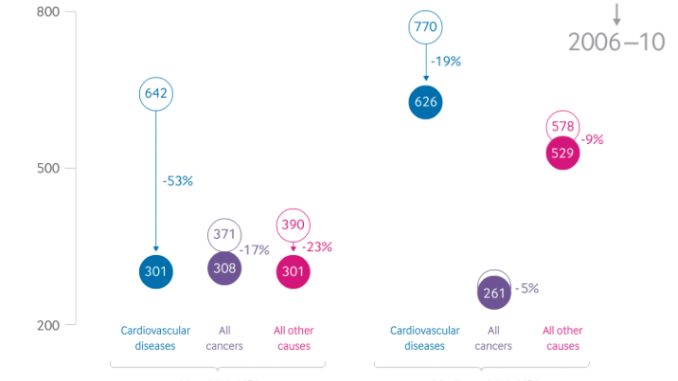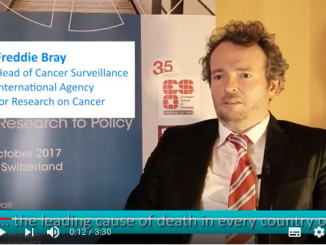
Cancer control measures that have contributed to increase life expectancy in rich populations have yet to be seen in poorer populations, according to a study just published on The BMJ by a group led by Dr. Bochen Cao of the International Agency for Research on Cancer (IARC), that calls for urgent global action.
In most developed countries, mortality rates from cancer and cardiovascular disease are declining, also thanks to effective prevention, early detection and treatment. In contrast, cancer mortality rates are still rising or at best stabilising in countries undergoing socioeconomic and health transitions, that still require the implementation of effective, affordable, feasible, and sustainable cancer control measures.
The international team of researchers evaluated the impact of cancer compared with CVD on life expectancy in ages 40-84, worldwide from 1981 to 2010, based on mortality data from the national civil registration systems of 52 populations in the member states of the World Health Organization. Mortality for all cancers combined as well as the five most common cancer deaths (lung, colorectum, stomach, prostate, and female breast) were examined. The Human Development Index (HDI) – a social indicator that measures national wellbeing in terms of wealth, health, and education – was used to compare populations.
The research showed that declines in mortality rates from CVD were much bigger than from cancer: they were responsible for over half of the gains in life expectancy in ages 40-84 between 1981 and 2010 (with gains of 1,7 years in women and 2,3 years in men in very high HDI populations).
The improvements in cancer control had a much smaller effect (up to one fifth of gains in life expectancy in ages 40-84) and varied depending on a population’s level of development, with gains of 0,5 years in women and 0,8 years in men in very high HDI populations, and 0,2 years (both sexes) in medium and high HDI populations.
«There is plenty that can be done now about current inequities in cancer control, including priority funding for poorer countries and for women» commented Marie Louise Tørring from Aarhus University in the accompanying editorial.





